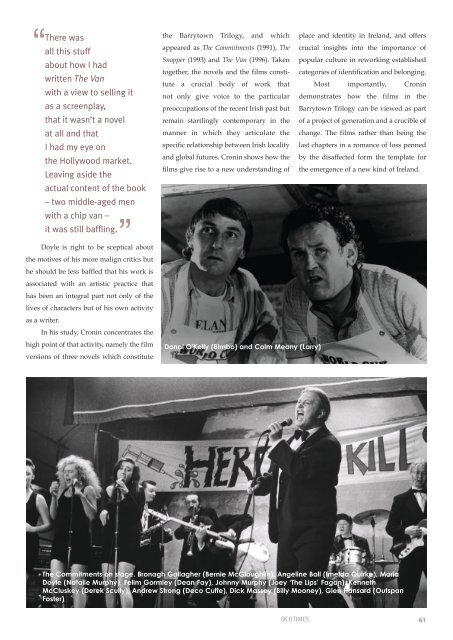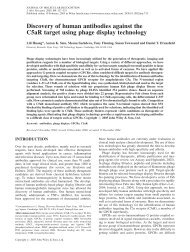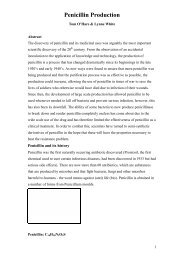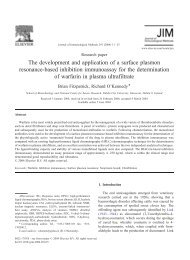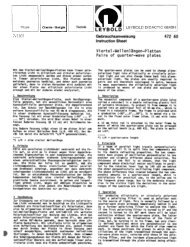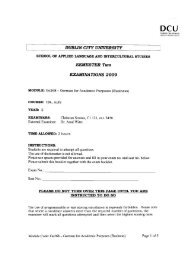Roddy Doyle under the lens
Roddy Doyle under the lens
Roddy Doyle under the lens
You also want an ePaper? Increase the reach of your titles
YUMPU automatically turns print PDFs into web optimized ePapers that Google loves.
“ There was<br />
all this stuff<br />
about how I had<br />
written The Van<br />
with a view to selling it<br />
as a screenplay,<br />
that it wasn’t a novel<br />
at all and that<br />
I had my eye on<br />
<strong>the</strong> Hollywood market.<br />
Leaving aside <strong>the</strong><br />
actual content of <strong>the</strong> book<br />
– two middle-aged men<br />
with a chip van –<br />
”<br />
it was still baffling.<br />
<strong>Doyle</strong> is right to be sceptical about<br />
<strong>the</strong> motives of his more malign critics but<br />
he should be less baffled that his work is<br />
associated with an artistic practice that<br />
has been an integral part not only of <strong>the</strong><br />
lives of characters but of his own activity<br />
as a writer.<br />
In his study, Cronin concentrates <strong>the</strong><br />
high point of that activity, namely <strong>the</strong> film<br />
versions of three novels which constitute<br />
<strong>the</strong> Barrytown Trilogy, and which<br />
appeared as The Commitments (1991), The<br />
Snapper (1993) and The Van (1996). Taken<br />
toge<strong>the</strong>r, <strong>the</strong> novels and <strong>the</strong> films constitute<br />
a crucial body of work that<br />
not only give voice to <strong>the</strong> particular<br />
preoccupations of <strong>the</strong> recent Irish past but<br />
remain startlingly contemporary in <strong>the</strong><br />
manner in which <strong>the</strong>y articulate <strong>the</strong><br />
specific relationship between Irish locality<br />
and global futures. Cronin shows how <strong>the</strong><br />
films give rise to a new <strong>under</strong>standing of<br />
Donal O'Kelly (Bimbo) and Colm Meany (Larry)<br />
DCUTIMES<br />
place and identity in Ireland, and offers<br />
crucial insights into <strong>the</strong> importance of<br />
popular culture in reworking established<br />
categories of identification and belonging.<br />
Most importantly, Cronin<br />
demonstrates how <strong>the</strong> films in <strong>the</strong><br />
Barrytown Trilogy can be viewed as part<br />
of a project of generation and a crucible of<br />
change. The films ra<strong>the</strong>r than being <strong>the</strong><br />
last chapters in a romance of loss penned<br />
by <strong>the</strong> disaffected form <strong>the</strong> template for<br />
<strong>the</strong> emergence of a new kind of Ireland.<br />
The Commitments on stage. Bronagh Gallagher (Bernie McGloughlin), Angeline Ball (Imelda Quirke), Maria<br />
<strong>Doyle</strong> (Natalie Murphy), Felim Gormley (Dean Fay), Johnny Murphy (Joey ‘The Lips’ Fagan), Kenneth<br />
McCluskey (Derek Scully), Andrew Strong (Deco Cuffe), Dick Massey (Billy Mooney), Glen Hansard (Outspan<br />
Foster)<br />
61


